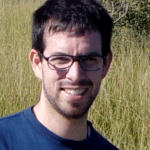 The current global development framework, the Millennium Development Goals (MDGs), expires at the end of 2015 and will be replaced by the post-2015 global development framework, which will include a set of new Sustainable Development Goals (SDGs). As climate change poses a critical challenge to the post-2015 agenda, its adequate inclusion across the post-2015 framework is of key importance to step on a development pathway capable of minimising both the contribution to, and impacts from climate change over development efforts.
The current global development framework, the Millennium Development Goals (MDGs), expires at the end of 2015 and will be replaced by the post-2015 global development framework, which will include a set of new Sustainable Development Goals (SDGs). As climate change poses a critical challenge to the post-2015 agenda, its adequate inclusion across the post-2015 framework is of key importance to step on a development pathway capable of minimising both the contribution to, and impacts from climate change over development efforts.
In September 2015 global leaders will take decisions affecting the lives of millions of people as they agree the framework that will replace the MDGs. The MDGs have shaped development policy and political agendas for the last 13 years and have brought some real improvements from reducing the number of people living on very low incomes, to increasing people’s access to medicines for HIV. However, other results such as MDG7 on environmental sustainability have been rather disappointing. Currently, the international community and stakeholders around the world are negotiating a new global framework to eradicate poverty through sustainable development: the post-2015 development agenda. This agenda will include both an overall narrative and guiding principles, and a new set of global goals, target and indicators to incentivize and measure progress – proposed to be known as the sustainable development goals (SDGs).
Climate change currently poses the biggest challenge to development with great potential to undermine the international community’s efforts to end poverty and achieve sustainable development through the post-2015 process. While emissions continue to rise at an alarming pace, the window of opportunity to avert catastrophic climate change is closing rapidly. To keep global warming below 2°C, countries will have to accelerate their pledges and actions to address climate change. The post-2015 framework can become an important contributor to our collective response to climate change by helping governments to articulate climate-sound development policies. This can be done by having one specific and ambitious SDG on climate change while introducing climate-related targets under other SDG areas that lead to adaptation, resilience and mitigation.
Currently, the adopted SDG report does include one specific goal on climate change and various targets under other goal areas such as agriculture, poverty, energy and sustainable consumption and production. However, in the upcoming intergovernmental negotiations, the “climate goal” will be under threat because some countries don’t see its relevance in the development debate. In the past years, the inclusion of climate change has seen a lot of opposition, with Member States arguing it overlaps with the UNFCCC and fearing it would “contaminate” the post-2015 process. Also, in an attempt to decrease the number of SDGs, many countries see the climate change goal as unnecessary given the UNFCCC existence. But the post-2015 framework as a voluntary framework aimed at eradicating poverty cannot and will not supplant the UNFCCC. Rather, action and political commitment towards tackling climate change through a post-2015 framework can provide support and momentum for an ambitious legally binding climate deal at COP21 while restoring faith in multilateralism.
The post-2015 process has seen a humble but positive integration of climate action across the SDGs. But our role as civil society organizations is to ensure that the current content remains and its ambition increases in the run-up to a post-2015 agreement. NGOs working on climate and human rights issues play a pivotal role in pushing countries to connect the dots. We have the opportunity to ensure that a future sustainable development agenda becomes a powerful tool to tackle climate change, and that this agenda safeguards the rights and benefits of the poorest and most vulnerable people and their livelihoods.
By Diego Martinez Schütt, Policy Analyst on Post-2015 at CAFOD – Catholic Agency for Overseas Development.
Watch This Content:
- Editorial
- Expectations for COP20 in Lima
- Dialogue of the Deaf?
- Why CDM projects do not qualify for GCF finance
- Courting the “rights” path for a changing climate: Developments in UNHCR and UNFCCC
- How the post-2015 global development framework can address climate change
- Campaign focus: Santa Rita’s oppression does not silence communities
- Watch This – Reading Suggestions






